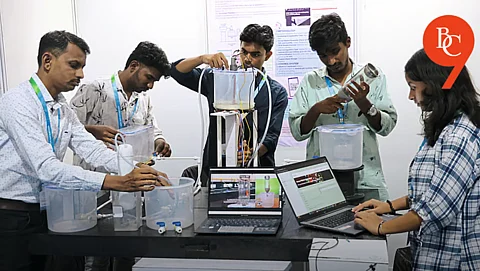

As water scarcity intensifies across India, experts and environmentalists are urging households to consider an often-overlooked resource: wastewater. With proper treatment, the wastewater generated from kitchens, bathrooms, and laundry, commonly known as greywater; can be transformed into a valuable asset for agriculture. This sustainable approach not only conserves freshwater but also promotes eco-friendly farming and urban resilience.
Every household produces significant amounts of wastewater daily. While blackwater (from toilets) requires complex treatment, greywater (from sinks, showers, and washing machines) contains fewer pathogens and is relatively easier to recycle. Traditionally, this water is discharged into drains, contributing to pollution and waste. However, new technologies and community-driven initiatives are demonstrating that greywater can be safely reused for irrigation after basic treatment.
Experts recommend several low-cost and effective methods to treat household greywater:
Filtration: Passing greywater through layers of sand, gravel, and charcoal removes suspended solids and reduces odor.
Natural Biofilters: Constructed wetlands or reed beds use plants and microorganisms to break down contaminants naturally.
Settling Tanks: Allowing water to stand in tanks helps heavier particles settle at the bottom, making it cleaner for reuse.
Disinfection: Simple solar disinfection (exposing water to sunlight in transparent containers) or chlorination can further reduce harmful microbes.
Once treated, this water can be safely used to irrigate gardens, vegetable patches, and even small-scale farms, especially for non-edible crops or ornamental plants.
Reusing household wastewater for agriculture offers multiple advantages:
Water Conservation: Reduces the demand for fresh water, crucial in drought-prone areas.
Reduced Pollution: Minimizes the discharge of untreated water into rivers and lakes, protecting local ecosystems.
Lower Utility Bills: Households and communities save on water costs by recycling what they already use.
Improved Soil Health: Properly treated greywater contains nutrients that can benefit plant growth.
A Pune Housing Society installed a simple filtration system, enabling residents to use recycled water for landscaping and kitchen gardens.
Despite the benefits, widespread adoption faces hurdles such as lack of awareness, initial setup costs, and regulatory gaps. Experts emphasize the need for:
Public Awareness Campaigns: Educating citizens about the safety and benefits of greywater reuse.
Government Incentives: Subsidies or tax breaks for households and communities implementing treatment systems.
Technical Support: Training local plumbers and builders in installing and maintaining simple treatment units.
Clear Guidelines: Establishing standards for safe greywater use in agriculture.
Transforming household wastewater into a resource for farming is an innovative and practical solution to India’s water crisis. With growing urbanization and climate change pressures, adopting such sustainable practices can ensure water security, environmental protection, and improved livelihoods for millions.
